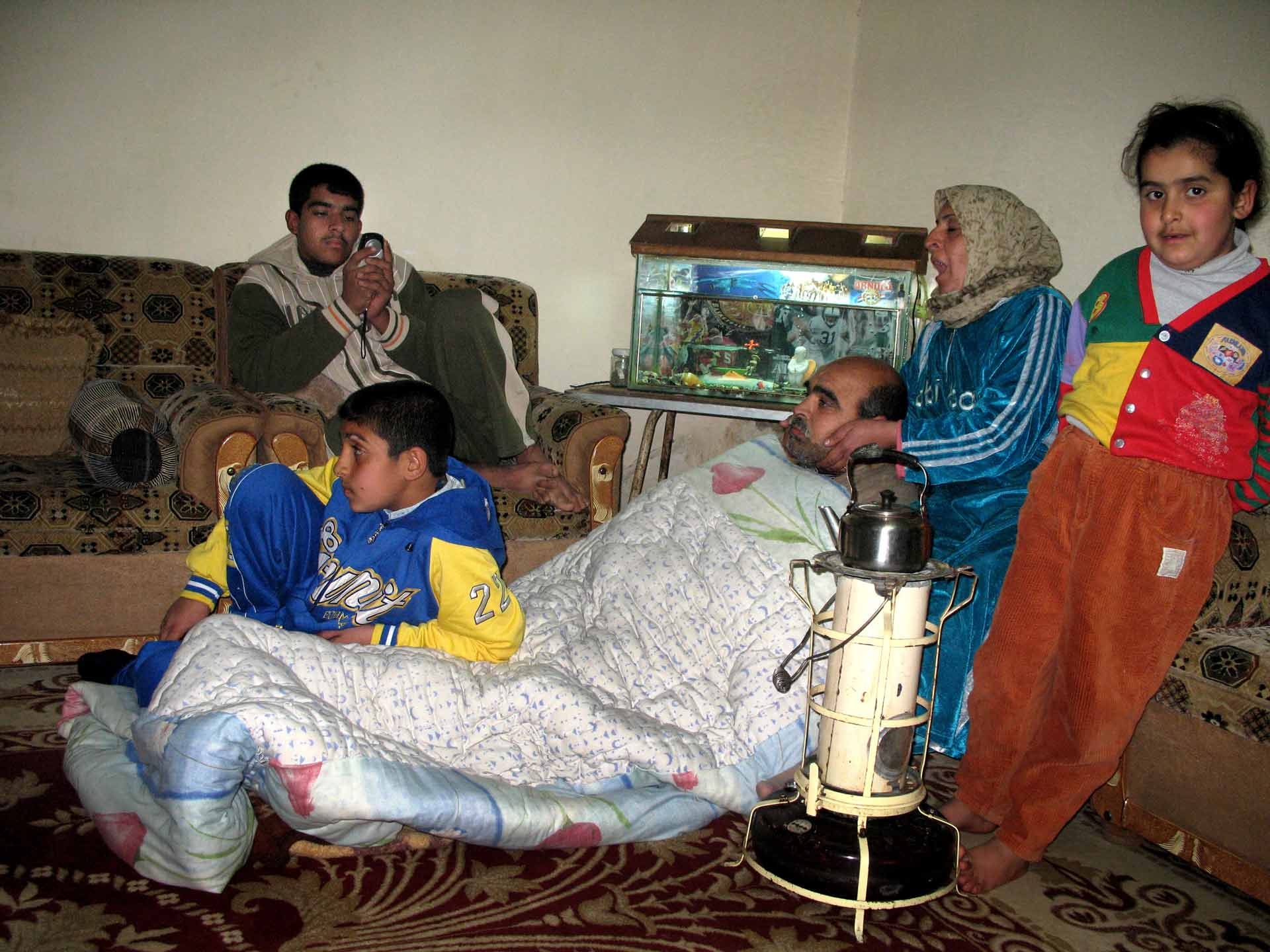Open Shutters Iraq
‘Motherhood’
I cook on the petrol stove; electricity and gas have become dear visitors who rarely honour us with their presence. I help my kids with their studies, do the laundry, and keep an eye on the food. It might take me as much as four hours to finish cooking. After coming back from work the next day, I spent an hour heating the meal. All this work, but it means I can see my whole family sitting down to a meal together, just as we used to. At home in Mosul.
© Antoinette, Mosul / Open Shutters Iraq
After the overthrow of Saddam Hussein in 2003, Iraq was left without an effective government or civilian infrastructure, and its people became increasingly vulnerable to the arbitrary violence of those exploiting the chaos. By 2006, it was increasingly impossible for journalists to work in the country, and the story of what was happening to ordinary people was not being heard.
Led by the photographer Eugenie Dolberg, Open Shutters Iraq was a participatory photography project that brought together a group of Iraqi women to tell their stories. Working with project managers in both Iraq and Syria, Dolberg gathered a group of women with diverse social, religious, and political backgrounds who came from five Iraqi cities: Baghdad, Basra, Falluja, Kirkuk, and Mosul. Irada al Jobbouri, a university lecturer who quit her job to become the Iraqi project manager, took months to gather the group of women through word of mouth via friends and recommendations, talking to each of them extensively to establish their motivation, the logistics and implications of their participation, and the risks involved.

If someone is not home by 5 pm and you cannot reach them by phone, everybody in the family is paralysed with fear at the image of their body riddled with bullets and thrown on a rubbish heap. The only time we can breathe again and relax is when we are back together under one roof. And if we are lucky enough to get one hour of electricity, we all gather together in front of the TV.
© Sarab, Baghdad / Open Shutters Iraq
Given the dangers of working within Iraq, the women came together in Damascus, Syria, to learn photography and share their experiences. Dolberg highlights that the women needed to have the space, trust, and creative tools to reflect on and talk about their experiences before beginning their own photo stories. Over four weeks, the women worked and lived together in a traditional house, building life maps that consisted of large charts full of family photos, scrawled poetry and quotations, the names of emotions, and detailing all the ups and downs of their lives. Each day they learnt and practiced different photo techniques. They wandered the streets of Damascus, taking pictures and reviewing the images they took each day. By the time they returned to Iraq, everyone had decided on a subject to make a photo story.
‘This is not a project; this is a dream. A dream I wanted to live for my daughter. So she can grow up and understand what is truly happening now.’
Project manager, Open Shutters Iraq
After six weeks, the women returned to Damascus with their images to edit and write about their stories and biographies over five days of workshops. Their work told deeply personal stories of war, loss, and occupation and of bravery, strength, survival, and resistance. Each woman chose whether to share their imagery under a pseudonym. Their work was published in a book, Open Shutters Iraq, containing nine photo essays. Their book is dedicated to the memory of two of the women, Sajida Um Mohammed, who died of cancer having lived in an area heavily affected by depleted uranium, and Sarwa, who was killed in Mosul by an armed group targeting vocal women. A film about the project, Our Feelings Took the Pictures, directed by Maysoon Pachachi, was also released on limited distribution due to the risks of sectarian violence.

